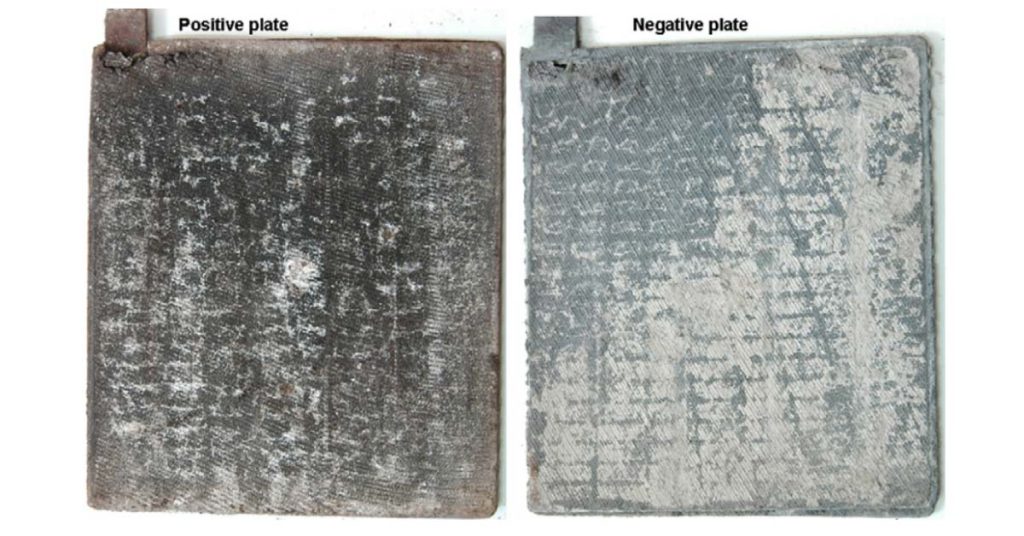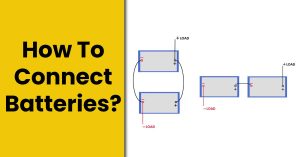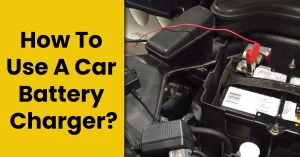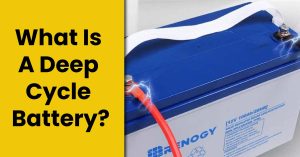What Is a Sulfated Battery? Learn How to Prevent It
In this article, we have discussed what is a sulfated battery, what are its causes, and effects, and how to prevent it with some tips and tricks.
If you have a lead acid battery and it fails to properly charge or takes longer than usual to charge, starts to lose cranking amps, or heat buildup increases in it, you may have a sulfated battery.
So what exactly is battery sulfation and how do you prevent it?
What Is Battery Sulfation?
Battery sulfation is the buildup or crystallization of lead sulfate on the surface of the active material of the battery’s lead plates. The sulfated area doesn’t participate in the charge-discharge process. It is the most common cause of battery failure. It happens when the battery doesn’t receive enough charge.
What Causes Sulfation in a Battery?

The biggest reason for battery sulfation is when the battery doesn’t receive enough charge, is undercharged, is not used, or is stored in a high-temperature area for too long.
The following are the causes of sulfated battery
What Are the Effects of Sulfated Battery?
We also have an article if you want to know how to clean battery terminals.
How to Reverse Battery Sulfation?
Two types of sulfation can happen to your lead acid battery. One of reversible, other is permanent. As the names suggest, one can be reversed to save the battery on time, and the other type is a permanent form of damage.
Permanent Sulfation in the Battery:
If your battery is low charge starts for a long time (weeks or months, and it is very difficult and even impossible to reverse the damage. Even an expert like me finds it difficult to reverse the damage.
You will know the sulfation is permanent when the battery takes ages to charge and loses its charge within hours.
If you want to know more about battery sulfation, read this research.
Reversible Battery Sulfation:
The sulfation damage can be reversed in a lead acid battery if you supply the battery with a constant current of 200mA over 15 to 20 hours.
Check the battery terminal voltage as well, it will be close to 2.66V per cell. The temperature in that case increases up to 135C which will help the crystals to dissolve within the battery.
If you cannot manage to give the battery a constant current of 200mA, then I would advise seeking professional help.
Battery shops will clean the battery cells and charge them properly for you. They will also check the gravity to determine whether the battery is close to being dead, or if will it last a bit longer.
How to Prevent a Sulfated Battery?
First and foremost, the simplest way to prevent sulfation is to keep the battery charged and never let the cells dry.
If you are not going to use the battery for a couple of days or maybe a week, then don’t let the voltage drop below 12.4V.
Some say 12.3V is also fine but I am telling you from my experience that 12.3V is not gonna do any good.
In August, there was a severe rain storm that lasted for like 2 weeks. The rain didn’t stop for even a single day.
My 2.2 inverter malfunctioned due to moisture and I had no use for my two 200Ah batteries until I repair the inverter. I left my batteries for 7 days, I took the reading and both batteries were at 12.3V.
I thought it was fine but nope! My batteries were sulfated. They were taking longer than usual to charge and their running time decreased by 20% than normal.
I had to take them to the nearest battery shop to recharge them since we were facing severe power outages due to wild rainstorms.
The guys at the maintenance charged them for over 20 hours at 200mA regulated current, and my batteries came back to life.
Point to be noted: don’t let the voltage drop below 12.4V.
High temperature is another factor contributing to the sulfation process. If the room temperature increases above 75 C, the performance of the battery starts to decrease. Try to install the batteries in a place where the temperature isn’t extreme.

Alex Black is a seasoned electrical engineer with a remarkable 8-year track record specializing in appliances, generators, and transfer switches. With extensive hands-on experience in the field, Alex possesses a deep understanding of electrical systems and their intricate workings. Throughout their career, Alex has consistently demonstrated expertise in designing, troubleshooting, and maintaining various electrical appliances.






